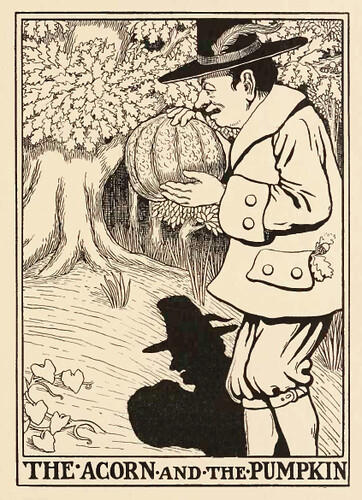HODIE: Kalendae Iuniae, the Kalends of June!
MYTHS and LEGENDS: The art image for today's legend shows Venus Tries to Detain Adonis ; you can also see the legends for the current week listed together here.

TODAY'S MOTTOES and PROVERBS:
TINY PROVERBS: Today's tiny proverb is: Carpe diem (English: Seize the day).
3-WORD MOTTOES: Today's 3-word verb-less motto is Pax, copia, sapientia (English: Peace, abundance, and wisdom).
ANIMAL PROVERBS: Today's animal proverb is Vae miseris ovibus, iudex lupus est (English: Alas for the wretched sheep: the judge is a wolf).
POLYDORUS: Today's proverb from Polydorus is: Noctuas Athenas (English: He's carrying owls to Athens - which is something like carrying coals to Newcastle).
PROPER NAME PROVERBS: Today's proper name proverb from Erasmus is Bellerophontes litteras adfert (English: He's carrying the letters of Bellerophon; from Adagia 2.6.82 - Bellerophon, of course, was carrying a command for his own execution!).
GREEK PROVERBS: Today's proverb is Ἔνεστι κἂν μύρμηκι χολή (English: Even the ant has its bile, i.e. has a temper!).
TODAY'S FABLES and STORIES:
ANECDOTE OF THE DAY: Today's anecdote is Memoria et Oblivio, an anecdote about Themistocles and Simonides.
FABULAE FACILES WIDGET: The fable from the Fabulae Faciles widget is Ranae et Sol, a story about the frogs and climate change (this fable has a vocabulary list).
MILLE FABULAE: The "chunk" of Mille Fabulae et Una today is Fable 911, Fur et Mater Eius, through Fable 921, Viator et Lapides, including Sceleratus et Daemon, a story about a wicked man who tries even the devil's patience.
AESOP IN ENGLISH VERSE: Today's fable from the English verse widget is The Woman and the Hen, a very fat hen, in fact!.
MILLE FABULAE WIDGET: The fable from the Mille Fabulae et Una widget is Philosophus et Cucurbita, a wonderful parable about the perfection of the natural world: Sunt qui vel mundi opificem sapientissimum reprehendere audeant. Cum quidam cucurbitam grandiorem tenui in caule humi iacentem videret, “Hem!” inquit; “non in caule tenui, sed in alta quercu ego eam suspendissem.” Abiit deinde, et sub quercu aliqua obdormiscebat. Qui cum dormiret, ventus glandes innumeras a quercu decutiebat, quarum aliqua nasum hominis vehementius tetigit. Expergefactus ille, cum sanguinem e naso profluentem cerneret, “Quid,” inquit, “si haec cucurbita fuisset, vix equidem viverem amplius? Deum profecto sentio sapientissime atque optime mundum disposuisse.”
